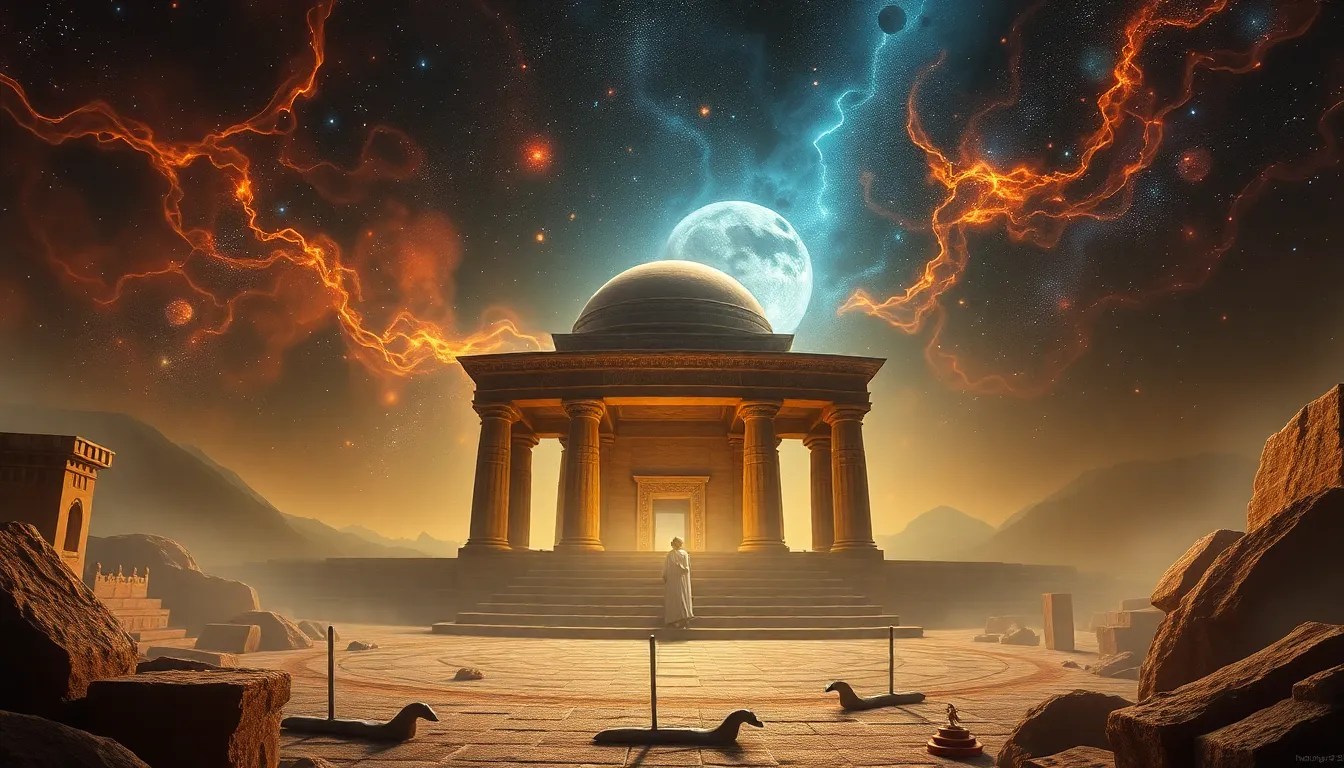The Oracles of Babylon: A Connection to the Cosmic Order
I. Introduction
Babylonian mythology stands as a cornerstone of ancient Mesopotamian culture, rich in stories, deities, and cosmic significance. The myths of this civilization reflect not only their beliefs but also their understanding of the world around them. Central to these beliefs were the oracles, who played a vital role in society, acting as intermediaries between the divine and the human realms. This article explores the significance of oracles in Babylon, arguing that they served as a bridge connecting humanity to the cosmic order, shaping societal beliefs and decisions.
II. Historical Context of Babylonian Oracles
The rise of Babylon as a cultural and political powerhouse was marked by its extensive influence across Mesopotamia. As a city-state, Babylon became a center for trade, culture, and religion, where oracles held significant sway over the populace.
- The rise of Babylon: Established around 1894 BCE, Babylon grew in power, especially under King Hammurabi, who unified much of Mesopotamia.
- Social and political importance: Oracles often advised rulers, legitimizing their decisions through divine will.
- Key figures: Notable figures include priests and diviners like the famous oracle of Marduk, who was regarded for his insights.
III. The Mechanisms of Oracle Divination
Oracle divination in Babylon was a sophisticated practice involving various methods to interpret divine messages. These methods included:
- Astrology and celestial observations: Babylonians believed that the movements of celestial bodies directly influenced earthly events.
- Haruspicy: This method involved examining the entrails of sacrificed animals, particularly the liver, to interpret omens.
- Dream interpretation: Dreams were seen as a conduit for divine communication, and skilled interpreters could discern their meanings.
Ritual practices accompanied these methods, emphasizing the sacredness of the act of divination. Rituals often included offerings to deities, purification rites, and specific prayers to ensure clarity and accuracy in interpretation.
IV. The Cosmic Order in Babylonian Beliefs
Babylonian cosmology was deeply intertwined with their understanding of the universe and its deities. The Babylonians believed in a structured cosmic order, where chaos was subdued by divine forces.
- Marduk: As the chief deity, Marduk symbolized the triumph of order over chaos, famously defeating the primordial sea monster Tiamat.
- Reflection of cosmic order: Oracles embodied this cosmic order, providing insights that aligned with the divine will and the natural world.
Through the oracles, the Babylonians reinforced their belief that the cosmos was orderly and that human actions could be aligned with this order through divine guidance.
V. Notable Babylonian Oracles and Their Prophecies
Throughout Babylonian history, several oracles emerged as prominent figures, known for their impactful prophecies.
- Significant oracles: Notable oracles include the priestess of Marduk, who conveyed vital messages from the gods.
- Famous prophecies: Prophecies such as the foretelling of Babylon’s conquest or crop failures had profound implications for governance and society.
- Accuracy and interpretation: While many prophecies were viewed as accurate, interpretations could vary, leading to differing perspectives on their significance.
VI. The Role of Oracles in Daily Life and Decision-Making
Oracles were not only advisors to kings but also played a crucial role in the everyday lives of the Babylonian people.
- Advisors to rulers: Kings consulted oracles before making significant decisions, believing that divine insight would guide them.
- Influence on agriculture, warfare, and health: Oracles provided forecasts that influenced farming practices, military strategies, and health decisions.
- Case studies: A notable case includes King Nebuchadnezzar II’s reliance on oracles for guidance during military campaigns.
VII. The Decline of Oracle Practices in Babylon
Despite their prominence, the practice of seeking oracles began to decline due to various factors.
- Decline of oracle usage: Changing beliefs and the rise of rational thought led to skepticism about divination.
- Impact of foreign conquests: The Babylonian Empire faced invasions, leading to cultural shifts that diminished the role of oracles.
- Legacy: The practices and beliefs surrounding Babylonian oracles influenced later civilizations and religions, particularly in their understanding of prophecy and divine communication.
VIII. Conclusion
The oracles of Babylon were instrumental in connecting humanity with the cosmic order, providing insights that shaped the beliefs and decisions of society. Their practices and prophecies reflect a deep-seated fascination with the divine and the cosmos, a theme that resonates even today. As we explore the rich tapestry of Babylonian mythology, we are reminded of the enduring impact of these ancient practices and the profound connection they established between the human and divine realms. Further exploration of Mesopotamian oracles and their cultural significance continues to unveil the complexities of this ancient civilization.



